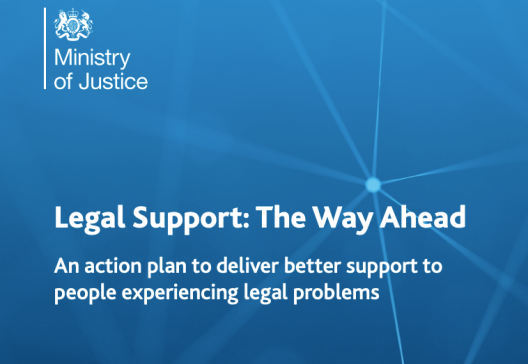Members of parliament have criticised the government over its provision of legal aid for family cases, in a debate held yesterday in the House of Commons. The discussion, which focused on the future of legal aid for both civil and criminal cases, looked at the impact of the Legal Aid, Sentencing and Punishment of Offenders Act 2012 (LASPO), on access to justice.
The government had hoped that its removal of legal aid for private family cases would lead to an increase in the number of families using mediation to resolve issues, and unblock the family courts, however this has not been the case. Labour MP, Teresa Pearce, who took part in the debate on Thursday, told the Health and Social Care Committee that research had shown a 56% drop in people accessing mediation services since the policy change.
Andrew Slaughter MP, (Lab), who also attended the debate, was scathing about the effects of LASPO on legal aid, calling out the Ministry of Justice for failing to deliver on its promise to offer new avenues for people to access legal services. Slaughter told the Committee that what the government had done instead, was to destroy the principle that people had a right to advice and representation. Slaughter also told the Committee that the new measures had had a disproportionate impact on women, and victims of domestic violence, with a significant number of those affected unable to protect themselves as they could not apply for legal aid.
Justice Committee Chair, Bob Neil MP (Con), talked about the idea of moving away from the Family Court’s adversarial system towards a more collaborative model. As a member of the current government, he was keen to defend the government’s policy on mediation, and told the Commons that there might be room for increasing funding within the early stages of legal advice for family cases, with a view to encouraging mediation.
Karen Buck MP (Lab), and Chair for the APPG on Legal Aid, called on the government to restore legal aid in full for family cases, warning that access to justice had already been seriously compromised:
“Access to justice is as fundamental to the functioning of a good society as services such as health and education, which we more often invoke when we talk about public services. Access to justice is now being deeply and dangerously undermined. We need not just warm words, but urgent and immediate action.”
Shadow Minister for Justice, Gloria De Piero (Lab) told the Committee that if Labour were elected, the party would restore all funding for early legal advice, including early advice within the family courts. Gloria did not outline how this would be done, and whether the measure had been budgeted for by the Labour party.
Parliamentary Under-Secretary of State for Justice, Lucy Frazer (Con), told MPs that she had outlined the process in place for the government’s review of LASPO at a meeting for the APPG on Legal Aid last week. Lucy confirmed that the evidence gathering process was underway for the review, and that officials would be meeting the Family Justice Council to discuss its concerns and recommendations, and would also hold a second meeting with the Civil Justice Council to explore the Council’s recommendations too.
You can read a transcript of the debate here.












